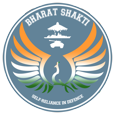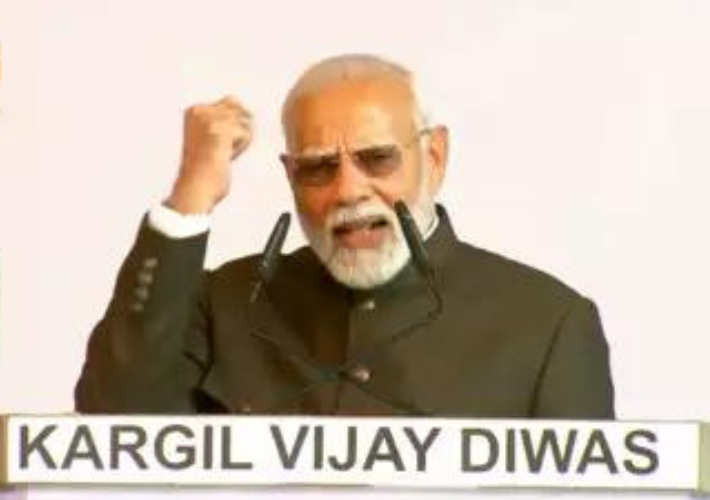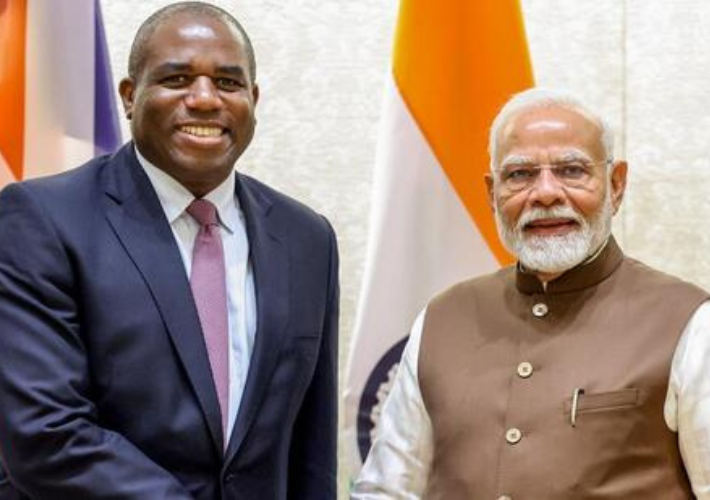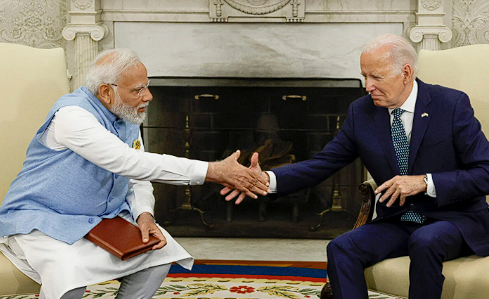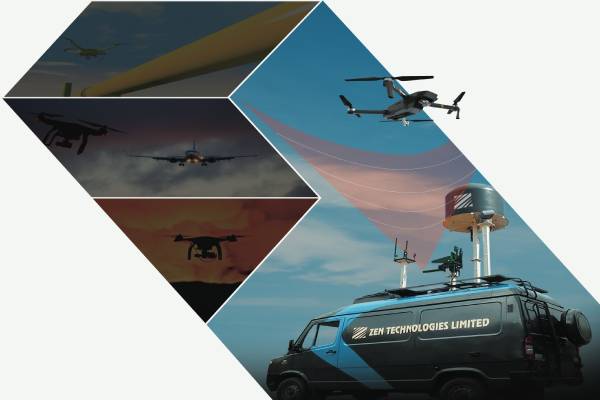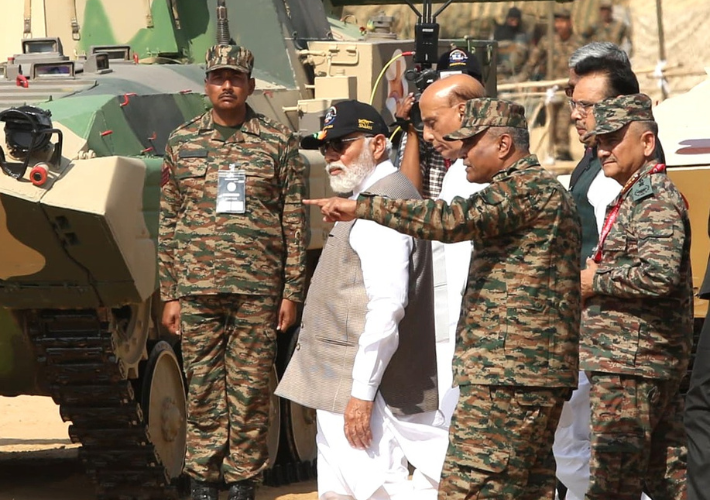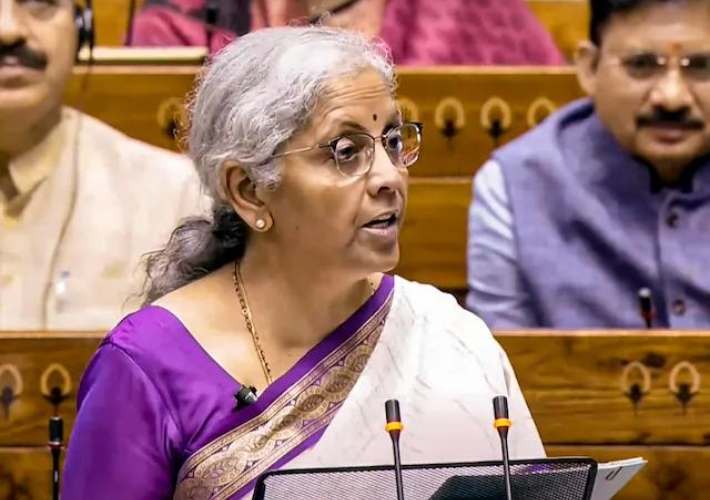Editor’s Note
Outsourcing certain services and saving manpower in the bargain are approaches already in practice in many military establishments. The author recommends evolving a policy on the issue and suggests a few parameters that need to guide policy formulation.
According to media reports, the Indian Army (IA) is contemplating outsourcing a few key services to optimise manpower. These services include training, equipment repair, catering, management of various facilities, waste disposal, medical consultancy services, transportation, etc.
Apparently, a few regional commands have already taken to outsourcing. Encouraged by its success, the Army Headquarters now wants others to follow suit, which should not pose much of a problem, considering that outsourcing is not uncharted territory for the armed forces.
Outsourcing conservancy services and using civil hired transport (CHT) has been a common practice for ages. However, as past experience shows, bringing other skilled or semi-skilled services within the ambit of outsourcing is not free from challenges. In 2007, for example, the Ministry of Defence (MoD) had authorised outsourcing of services to make up for the deficiency of manpower, but the move fizzled out, primarily because of the lack of clarity about the way the policy was to be implemented.
To give outsourcing a life of its own, it is essential to lay down a broad policy specifying the criterion for identifying the areas suitable for outsourcing and the modality of its implementation. This issue was examined by the Defence Expenditure Review Committee (DERC) set up by the MoD in 2008 under the chairmanship of the late Vinod Kumar Misra, former Secretary (Defence Finance). Some of the suggestions made by the committee in its 2019 report continue to be relevant in the present context.
First, it would be desirable to evolve the policy on outsourcing on the premise that functions and services for which in-house capabilities do not exist are ideally suited for outsourcing. Where such capabilities are available, outsourcing should be resorted to only if it does not result in their idling or underutilisation. In either case, the deciding factor should be whether the function -both ‘core’ or ‘non-core’- intended to be outsourced can be performed more efficiently and cost-effectively by an external agency.
Second, it is important to establish long-term relationships with the service providers. It is not advisable to enter into short-term agreements, as frequent service provider changes can adversely affect efficiency. It could be challenging to find reliable and competent service providers to take on functions that require initial investment to set up the required capabilities unless the prospective investors are reasonably confident of a stable long-term relationship.
Third, security considerations warrant that the prospective service providers be screened carefully, which, in turn, implies that the eligibility criteria for them to participate in the tender process must be prescribed by the MoD for the sake of uniformity. These eligibility criteria cannot be the same across all areas of outsourcing. The eligibility criteria for an entity engaged in waste management disposal, for example, need not be the same as for the entity engaged in transportation.
Fourth, service providers may not be available at all to undertake every function to be outsourced, or they may not be available in some particular geographies, such as Northeast India, especially for undertaking specialised tasks like training, repairs, and paramedical support. Even where service providers are available, the competition may be very restricted or the capacity of the service providers inadequate. It calls for proactive intervention to create a capable eco-system.
Involving the private sector-micro and small enterprises is the best bet, provided eligibility criteria are pragmatic enough to facilitate their engagement and wide publicity is given to the requirements. It may also be a good idea to lay down a policy of giving preference to small timers for some of the to-be-outsourced functions and services.
There is a lot of potential in all this for the ex-servicemen. The Directorate General of Resettlement could formulate suitable policies to encourage them to form proprietorship firms, co-operatives, or other types of companies and hit the ground running as service providers. It would be mutually beneficial as, on the one hand, the veterans’ skills and experience would get harnessed, and on the other, it would facilitate their resettlement.
Fifth, procedural tangles can tie down the best policies into knots and obstruct their implementation. Laying down a well-thought-out procedure is the most critical component of a policy regime. In the present context, it would mean not only specifying the areas for outsourcing and the eligibility criteria for the service providers but also laying down the terms and conditions of outsourcing, the bidding process, financial powers to approve outsourcing proposals and other related processes. Special attention needs to be given to standardise the format of the contract documents.
The MoD can take a cue from the General Financial Rules, 2017 (GFR 2017), which govern the procurement of goods and services by the ministries and departments of the central government. These rules contain specific provisions for the procurement of ‘non-consultancy’ and ‘consultancy’ services. The former comprise services that ‘involve physical, measurable deliverables/ outcomes, where performance standards can be clearly identified and consistently applied’, such as hiring vehicles, office errands, and even other services like aerial photography, satellite imagery, mapping, etc.
Traditionally, the focus of outsourcing in the defence sector has been on these ‘non-consultancy’ services, but things have changed since DERC submitted its report in 2009. Accordingly, MoD needs to focus in equal measure on outsourcing ‘consultancy’ services, which, in terms of GFR 2017, typically involve obtaining ‘expert or strategic advice’ by engaging management, policy, and communications consultants. This category also includes advisory and project-related consulting services like feasibility studies, project management, and engineering services.
Surely, the Defence Acquisition Procedure 2020 (DAP 2020) permits reaching out to ‘Subject Matter Experts’ (SMEs) from the academic community, legal fraternity, and industry associations at various stages of the acquisition cycle, such as at the time of formulation of the Services Qualitative Requirements and assessment of technology absorption by the Indian Production Agencies. The Empowered Project Committees in Strategic Partnership acquisition cases are also permitted to co-opt SMEs who have domain knowledge of relevant fields like procurement, contract law and transfer of technology arrangements.
It’s doubtful if these enabling provisions in DAP 2020 have normalised the engagement of external experts to help carry out various acquisition-related functions, even without any clear-cut procedure for engaging the experts. At some point, MoD will have to start paying greater attention to this deficiency. It is important because ad hoc engagement of domain experts provides the flexibility of bringing in an unbiased expert with up-to-date knowledge of the subject and the motivation to deal with the issue at hand rather than getting involved in the nitty-gritty of the project.
In this age of AI and cyber warfare, MoD will need to engage computer geeks and whiz kids who may not conform to the conventional notions of formal education, age, and experience as necessary eligibility conditions for engagement. It will not be possible to leverage the enthusiasm of our youth for national security unless suitable paradigms are evolved to harness their genius, which may not necessarily be linked with formal education.
There is no better way to conclude than to quote Azim Premji, Chairman of Wipro Limited, who famously said: The important thing about outsourcing or global sourcing is that it becomes a very powerful tool to leverage talent, improve productivity and reduce work cycles. The MoD is on the right path, but it needs to do more to mainstream outsourcing as a part of the procurement system of goods and services.
Amit Cowshish

